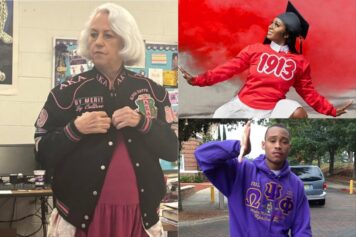Marlen Suyapa Bodden had faith that her first book, “The Wedding Gift,” a historical novel about American slavery that she self-published in 2009, would find an audience, but she never dreamed she would land four separate six-figure deals with major publishers who plan to launch the book next year in U.S. and international markets.
Bodden’s book tells the story of wealthy plantation owner Cornelius Allen who gives his daughter, Clarissa, a slave girl named Sarah as a wedding gift. Sarah also happens to be his daughter from a relationship with his longtime slave Emmeline. The story is told from the points of view of Sarah and Allen’s wife, Theodora, and depicts the brutality of slavery and how plantation owners treated women, both free and slave, in the pre-Civil War South.
The book is one of a number of recent and coming re-examinations of slavery. Filmmaker Quentin Tarantino is working on the movie “Django Unchained,” co-starring Kerry Washington and Jamie Foxx. Michael Fassbender is signed on to star in director Steve McQueen’s “12 Years a Slave” with Chiwetel Ejiofor. And recently writer Lois Leveen published the slavery-themed novel “The Secrets of Mary Bowser.”
“The Wedding Gift” will be published by Random House/U.K. and the British Commonwealth in the first quarter of 2013. St. Martin’s Press/U.S., Canada and the U.S. Territories plans to publish the book in the fourth quarter of next year. She also has contracts with Random House/Germany, and with Norwegian publisher Cappelen-Damm.
Bodden signed the first of her book contracts in March, and says the deals “happened so quickly that I have to tell you, to this day I haven’t really processed it,” says Bodden, 52, who lives in Stamford, Conn., and has been a lawyer at the Legal Aid Society in New York for 19 years. She specializes in employment law, representing low-income immigrants and other low-wage workers.
Bodden got the idea for “Wedding Gift” after reading a footnote in a nonfiction book about runaway slaves. When she became involved in a case involving a domestic helper from Asia whose employers took away her passport and forced her to work without pay, Bodden realized she was confronting a case of “modern-day slavery.”
Bodden, who was born in Honduras (her father is African-American and her mother is from Honduras), did extensive research on the history of slavery in the U.S. She worked on her book at night, on weekends and during vacations. She didn’t tell anyone, not even her husband. “Lots of people say they’re writing a book and [instead] they spend time talking about the book,” she says. She also didn’t want naysayers trying to discourage her from writing. Indeed, after she finished the book, Bodden says some people asked, “Who would want to read a book about slavery?”
She decided to publish the book herself after getting rejection letters from literary agents and being told “in this market, slavery is a hard topic to sell.” Undaunted, Bodden asked friends and family members to put her in touch with book clubs, public libraries, book fairs, universities and colleges so she could promote her book. Her hard work and persistence paid off. She got speaking engagements, did book signings, and two professors included her book as part of the class curriculum – all of which garnered sales.
“Every time, I kept thinking, well this is going to go the way of all self-published books, it’s going to be successful on a small scale… I was happy with that level of success.’’
Her big break, however, came late last year when she contacted Amazon for help to increase her book sales. Through Amazon’s promotion programs, Bodden ended up selling 140,000 ebooks and soft covers. “The ebook version is really the success story,’’ Bodden says, who soon after was able to get a literary agent.
Bodden hopes the book raises awareness about slavery. ““I consider myself an advocate against slavery today. … There are over 27 million slaves around the world in all areas of industry and trade,” she says, referring to those who are forced to work without pay and who can’t leave their jobs because they are victims of violence or face the threat of violence.
“With ‘Wedding Gift’ I can spread that slavery exists and it’s widespread and we all need to do something about it. We all need to try to end it.”
Source: WSJ


